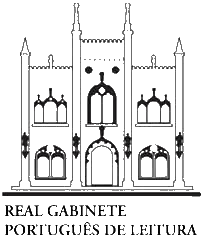Figuration of a certain animal thought in Carlos de Oliveira and Carlos Drummond de Andrade
DOI:
https://doi.org/10.37508/rcl.2024.n51a1266Keywords:
Carlos de Oliveira, Carlos Drummond de Andrade, Modernity, Crisis, AnimalityAbstract
The aim of this article is to make a comparative reading of chronicles from Boca de Luar (1984) and poems from Claro Enigma (1951), by Carlos Drummond de Andrade, and texts by Carlos Oliveira, especially Sobre o lado esquerdo (1968) and Finisterra-paisagem e povoamento (1978). The reading also aims to identify similarities between the two poetics in terms of a certain idea of modernity that runs through the work of both writers. An idea that is refractory to the euphoric, positive and positivist modern project that became dominant at the end of the 19th century until the middle of the 20th century. Viewed critically, the late modernity appears in the two modernist poets as a crisis symptom of disenchantment and helplessness of the unfulfilled promises of socio-economic and techno-scientific progress announced since the 18th century. Ghosts emerge from the enlightenment reason in broad daylight. Our reading hypothesis shows, through the construction of possible alterities in the figuration of an animal thought, another elaboration – or perlaboration – of an untimely reading of modernity in the texts of the two Carlos: de Oliveira and Drummond de Andrade. The critical-theoretical support comes from Jacques Derrida’s seminal essay Animal que logo sou and the book Literatura e animalidade by Maria Esther Maciel, a pioneer in studies on literature and animality in Brazil.
Downloads
References
ANDRADE, Carlos Drummond de. Boca de Luar. São Paulo: Círculo do Livro, 1984.
ANDRADE, Carlos Drummond de. Discurso de primavera e algumas sombras. Rio de Janeiro: Record, 1977.
ANDRADE, Carlos Drummond de. Dossiê Carlos Drummond de Andrade. Inimigo Rumor, n. 13. Rio de Janeiro: 7Letras, 2002; Lisboa: Livros Cotovia, 2002.
ANDRADE, Carlos Drummond de. Reunião. 6ª ed. Rio de Janeiro: Record, 1974.
DELEUZE, Gilles. Crítica e Clínica. (Coleção Trans). Tradução: Peter Pál Pelbart. 2ª ed. São Paulo: Editora 34, 2011.
DERRIDA, Jacques. O animal que logo sou (A seguir). Tradução: Fábio Landa. São Paulo: Editora Unesp, 2002.
FREUD, Sigmund. O mal-estar na cultura. Tradução: Renato Zwick. 2 ªed. revisada. Porto Alegre: LP&M, 2016.
MACIEL, Maria Esther. Literatura e animalidade. Rio de Janeiro: Civilização Brasileira, 2016.
NANCY, Jean-Luc. A resistência da poesia. Tradução: Bruno Duarte. Lisboa: Vendaval, 2006.
OLIVEIRA, Carlos de. Obras de Carlos de Oliveira. Lisboa: Caminho, 1992.
OLIVEIRA, Carlos de. Casa na Duna. In Obras de Carlos de Oliveira. Lisboa: Caminho, 1992a.
OLIVEIRA, Carlos de. Finisterra: Paisagem e povoamento. In Obras de Carlos de Oliveira. Lisboa: Caminho, 1992b.
OLIVEIRA, Carlos de. O Aprendiz de Feiticeiro. In Obras de Carlos de Oliveira. Lisboa: Caminho, 1992c.
OLIVEIRA, Carlos de. Pequenos Burgueses. 4ª ed. Lisboa: Publicações Dom Quixote, 1972.
OLIVEIRA, Carlos de. Trabalho Poético. Organizado por Ida Alves. Rio de Janeiro: Oficina Raquel, 2021.
OLIVEIRA, Carlos de. Uma Abelha na Chuva. 21ª ed. Lisboa: Sá da Costa, 1982.
SILVESTRE, Osvaldo Manuel. História e direito natural em Finisterra. Paisagem e Povoamento. In: Silvestre, Osvaldo Manuel (org.). Depois do fim nos 33 anos de Finisterra. Paisagem e Povoamento, de Carlos de Oliveira. Coimbra: Centro de Literatura Portuguesa, 2009. p. 75-85.
SÜSSEKIND, Flora. Um poeta invade a crônica. Folha de São Paulo, 21 de agosto de 1987.
Downloads
Published
How to Cite
Issue
Section
License
Authors who publish in Convergência Lusíada agree with the following terms:
- Authors retain copyright and grant the journal right of first publication with the work simultaneously licensed under a Creative Commons Attribution-NonCommercial 4.0 International License (CC-BY-NC 4.0) that allows others to share the work with an acknowledgment of the work's authorship and initial publication in this journal.
- Authors may enter into separate, additional contractual arrangements for the non-exclusive distribution of the journal’s published version of the work (e.g., post it to an institutional repository or publish it in a book), with an acknowledgment of its initial publication in this journal.
- Authors are permitted and encouraged to post their work online (e.g., in institutional repositories or on their website) prior to and during the submission process, as it can lead to productive exchanges, as well as earlier and greater citation of published work.

Revista Convergência Lusíada is licensed under a Creative Commons - Atribuição-NãoComercial 4.0 Internacional.









